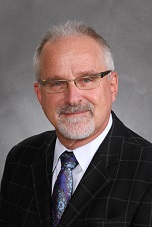 Doing more with less time and money is healthcare's greatest imperative. Lawrence R. Kosinski, MD, MBA, AGAF, AGA Institute Practice Councilor and partner of Illinois Gastroenterology Group in Elgin, offers insight into and solutions for some of the biggest operational and financial concerns for GI physicians and endoscopy centers.
Doing more with less time and money is healthcare's greatest imperative. Lawrence R. Kosinski, MD, MBA, AGAF, AGA Institute Practice Councilor and partner of Illinois Gastroenterology Group in Elgin, offers insight into and solutions for some of the biggest operational and financial concerns for GI physicians and endoscopy centers.
Question: What are the biggest financial concerns for gastroenterologists going in to 2015?
Dr. Lawrence Kosinski: The biggest financial concerns for gastroenterology surround the following three issues:
Professional reimbursement: In the 2015 Medicare Physician Fee Schedule Final Rule, CMS delayed its valuation of lower GI codes until CY2016, as requested by the three GI societies' presidents at a meeting with CMS Administrator Marilyn Tavenner, as well as in comments by more than 450 GI physicians to the agency this summer. AGA, ACG and ASGE worked together throughout 2014 to advocate on GI reimbursement issues and will continue to work with CMS in 2015 as the agency determines the 2016 payment rates for GI procedures
However, it is anticipated that the CMS will significantly lower professional reimbursement for colonoscopy in 2016. We won't know the significance of the cuts, but it is anticipated they could exceed 15 percent. This will place pressure upon practices to control costs.
Facility reimbursements: These are progressively converging to office endoscopy rates. This is expected to continue and could remove 15 percent to 20 percent from facility fees.
Bundled payments: Reference pricing will promote the deployment of bundled pricing for our procedures, especially colonoscopy. In addition, independent companies are entering the space to negotiate bundles with self-insured clients. This will push reimbursements down. The AGA has developed a bundled payment framework for colonoscopy performed for colorectal cancer screening or surveillance to inform physicians who wish to consider contracting with payers, purchasers and risk-bearing organizations around new payment models.
Q: What are the biggest operational and efficiency concerns?
LK: The biggest avoidable expense in an ambulatory surgery center is an empty room. Having a facility and staff present with a lightly scheduled operating room is our most significant financial exposure. Your highest expenses are your employees and your facility. Appropriate scheduling can alleviate this issue. Selective overbooking can be utilized as well. The bottom line is the ORs must be used to their capacity.
Q: What can GI practices and endoscopy centers do to combat those pressures?
LK: GI practices must first focus on efficiency. This means that ASCs must assess each physician with respect to his/her individual volumes, timeliness, procedure times, equipment utilizations, complications, etc. We are all "cogs in a wheel" that must be spinning at the highest efficiency.
We must embrace the changes that are occurring by opening and maintaining dialogue with our payers, including the self-insured employers in our regions. Don't let one of the third party entities drive the bundling. Be proactive.
Q: What can gastroenterologists do to improve operational efficiency without affecting quality?
LK: Quality improves efficiency. This is not an "either or" relationship.

